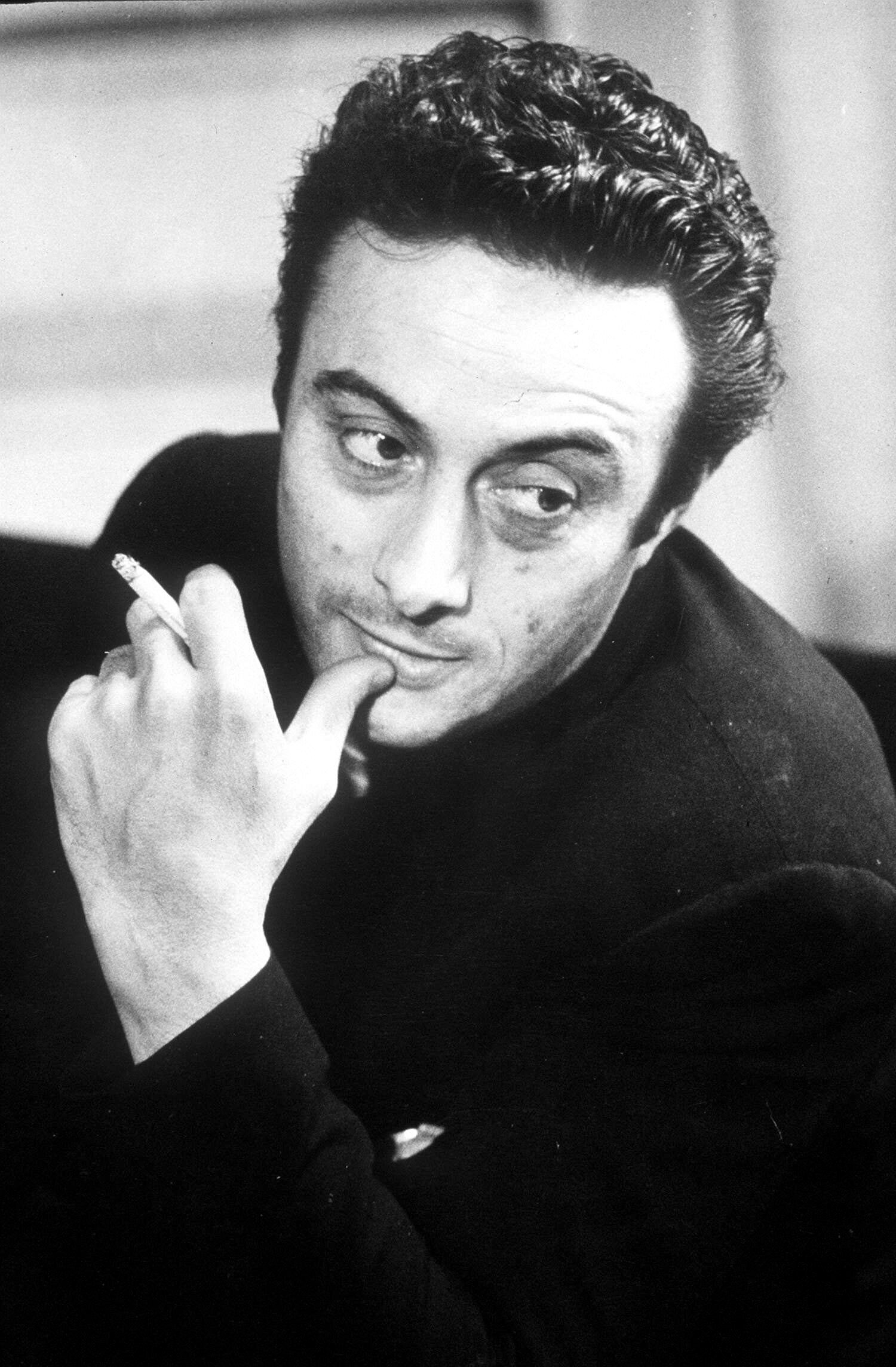E.M. Forster once said, “How do I know what I think until I see what I say?”
He was observing that, in our brains, thoughts often bounce and jump around frenetically; for many of us, we have to verbalize — or write down — our thoughts before they gain clarity. So, in a sense, the right to speak freely is the right to think freely.
And few people were stronger defenders of the right to speak freely than comedian Lenny Bruce (1925-1966).
Wrote playwright Ronnie Marmo, who also stars as Lenny Bruce in the play I’m Not a Comedian … I’m Lenny Bruce, “While Lenny technically died of an overdose of morphine, I believe he died of an overdose of the police. They hounded this man because he pushed the envelope.”
He was arrested at least four times for obscenity in public, although Bruce would argue that he wasn’t forcing his words upon an unsuspecting “public” in parks and libraries, but instead performing for a private audience of people who had voluntarily chosen — and paid — to hear him.
One of his arrests was for using the Yiddish word “schmuck;” another was for using the word “cocksucker;” yet another was for his famous ‘Religions, Inc.’ bit, in which he compared religions to big businesses. Each time, he was exposing hypocrisy by saying things out loud that people were saying and doing behind closed doors. As Lenny would say, “The truth is what is, and what should be is a fantasy.” (Another great quote of his: “If you take away the right to say ‘fuck,’ you take away the right to say, ‘fuck the government.’”)
His words and thoughts are as applicable today as they were in the ’50s and ’60s.
“Lenny never sugarcoated … everything was fair game. He held a mirror up to society to expose hypocrisy and challenged us to think deeply and honestly,” Marmo wrote. And, surely, Bruce would be happy to know how greatly he influenced comedy and popular culture.
George Carlin’s groundbreaking “7 Words You Can’t Say on TV” routine came right from the Lenny Bruce playbook.
Simon and Garfunkel sang that they “learned the truth from Lenny Bruce.” More recently, Sarah Silverman garnered attention as “the second coming of Lenny Bruce.” Even one of R.E.M.’s biggest hits mentions him in the first verse: “Lenny Bruce is not afraid.”
In 2003, legendary First Amendment lawyer Robert Corn-Revere (below) successfully petitioned for a pardon for Bruce’s 1964 obscenity conviction, a win not only for Bruce, his family, and his legacy but for everyone who believes in free speech — and free thought.


